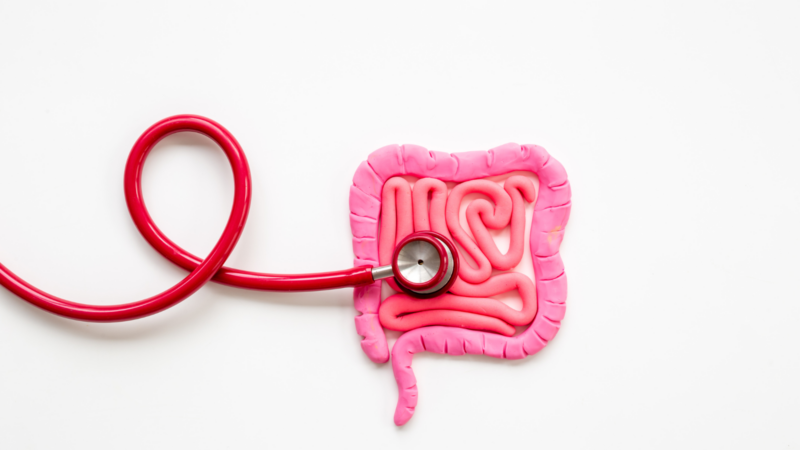
A recent YouGov survey reveals a concerning knowledge gap about bowel cancer symptoms in Great Britain:
- Only 12 per cent recognise bleeding from the bottom as a warning sign
- Only 22 per cent are aware that changes in bowel habits could indicate cancer
- Less than half (47 per cent) know that blood in stool is a symptom
- 35 per cent of people couldn’t name any symptoms

This Bowel Cancer Awareness Month, Dr Deepak Kumar, Cancer Lead for NHS Mid and South Essex, takes you through the ABCD of bowel cancer – a simple way to remember these vital warning signs.
Bowel cancer is the UK’s second deadliest cancer after lung cancer, claiming 16,800 lives yearly. Yet when caught early, more than nine in 10 people survive. Read on to learn these crucial symptoms and when to speak to your GP.
What is the ABCD of Bowel Cancer?
Our ABCD approach makes it easier to remember the main symptoms to watch out for:
A – Altered Bowel Habits
Have you noticed a persistent change in your normal toilet routine? This might include:
- Going to the toilet more frequently
- Looser stools or diarrhoea that doesn’t go away
- Constipation that isn’t usual for you
- Feeling like you can’t fully empty your bowels
These changes are especially important if they last for three weeks or more.
B – Blood in Your Poo or Bleeding
One of the most recognisable signs of bowel cancer is blood in your poo or bleeding from your bottom. This blood might be:
- Bright red
- Dark red or black (which makes your poo look dark)
- Mixed in with the poo
- On the toilet paper after wiping
Any unexplained bleeding should be checked by your GP, even if it only happens once.
C – Cramping or Abdominal Pain
Discomfort or pain in your tummy area, especially if it seems connected to eating, could be a warning sign. This might feel like:
- Persistent cramps or pain in your abdomen
- Pain that comes and goes, particularly after eating
- A lump or swelling in your tummy
While many things can cause tummy pain, persistent or unusual pain should be investigated.
D – Dramatic Weight Loss and Tiredness
Unexplained weight loss – when you’re not trying to lose weight – and extreme tiredness can sometimes be signs of bowel cancer. Look out for:
- Losing weight without changing your diet or activity levels
- Feeling more tired than usual for no apparent reason
- Loss of appetite
When Should I Speak to My GP?
It’s important to remember that most people with these symptoms don’t have bowel cancer. They can be caused by other, less serious conditions like haemorrhoids, irritable bowel syndrome, or inflammatory bowel disease.
However, if you notice any of these symptoms, especially if they last for three weeks or more, it’s best to speak to your GP. They can investigate and either put your mind at rest or refer you for further tests if needed.
If you’re worried and suspect something may be wrong, it’s completely acceptable to ask your GP for a FIT (Faecal Immunochemical Test) test. This simple test can be done at home and detects tiny amounts of blood in your poo that wouldn’t be visible. The results can help your GP decide if you need further investigation.
Don’t be embarrassed – GPs are used to discussing these types of symptoms and the earlier cancer is found, the more effective treatment is likely to be.
The NHS Bowel Cancer Screening Programme
As well as being aware of symptoms, participating in screening is vital for early detection. The NHS offers free bowel cancer screening to everyone aged 54-74.
The test is done at home and involves collecting a small sample of poo using a kit that’s sent through the post. The sample is then checked for tiny amounts of blood, which could indicate cancer.
Screening can detect bowel cancer before symptoms appear, which is why it’s so important to take part when invited.
Bowel Cancer in Younger People
While bowel cancer is still most common in people over 50, we’re seeing a concerning trend of more cases in younger adults. Research shows that since the early 1990s, bowel cancer rates have been increasing by about 1.8 per cent annually in 30 to 39-year-olds in the UK.
The reasons for this increase aren’t fully understood, but factors may include changes in diet, increasing obesity rates, more sedentary lifestyles, and changes in gut bacteria.
This trend highlights that bowel cancer can affect people of all ages. If you’re under 50 and experiencing any of the ABCD symptoms, don’t dismiss them because of your age – speak to your GP. Early diagnosis is crucial regardless of how old you are.
Reducing Your Risk
You can help reduce your risk of developing bowel cancer by:
- Eating plenty of fibre-rich foods like wholegrain bread, cereals, beans, and vegetables
- Cutting down on processed and red meat
- Staying physically active
- Maintaining a healthy weight
- Quitting smoking
- Limiting alcohol consumption
Remember: Early Detection Saves Lives
Bowel cancer is one of the most treatable types of cancer when found early. By knowing the ABCD symptoms and participating in screening, you’re taking important steps to protect your health.
If you notice anything unusual, don’t wait – speak to your GP. The NHS is here to help you.